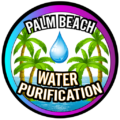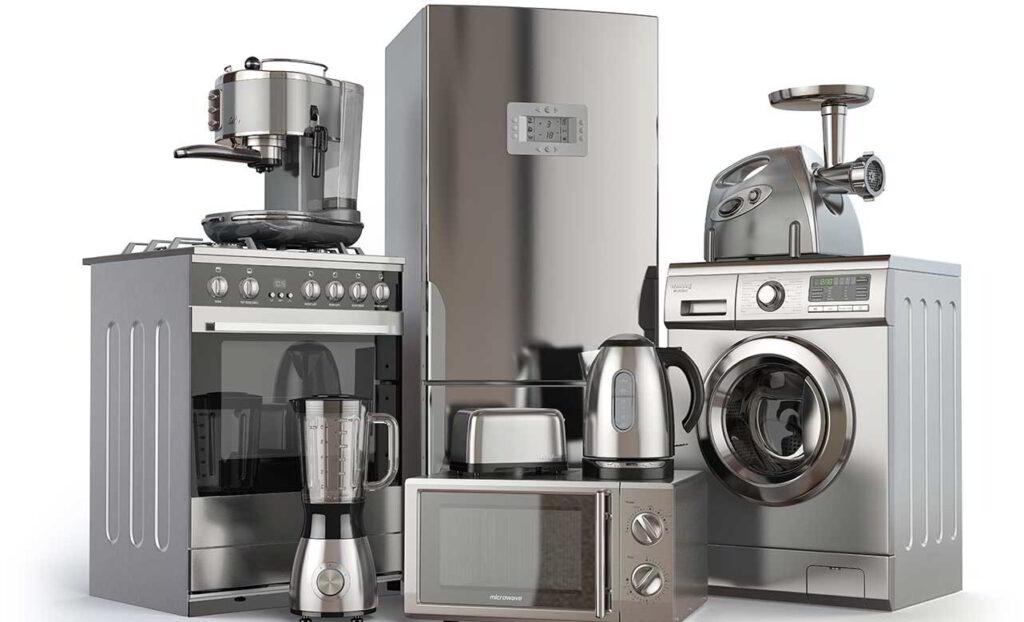Perhaps you’ve found yourself complaining about the quality of your last replaced kitchen appliance. Maybe you called the technician to repair your dishwasher or washing machine only to find out that you have to replace the equipment yet again. Is it that they just don’t produce quality appliances anymore, or is there a reason why yours do not last as they should?
Well, never fear because you can do something about the situation. And it begins with identifying the root cause of the problem, which in most cases, hard water. In this article, you’ll find out how the quality of water running through your apartment contributes to the frequent appliance repairs and replacement and the ways that you can protect your kitchen appliance from such problems.
Effects of hard water on kitchen plumbing and appliances
When the minerals in water are deposited in the piping system or kitchen appliances, the water supplied to your home can be the reason for pipes and kitchen appliances damage. Hard water usually contains a high amount of minerals like calcium and magnesium. These minerals are the reason for scale buildup in faucets and kitchen appliances like garbage disposals and dishwashers.
The hard water effects on appliances are numerous. Lime scales from hard water can clog or block the plumbing system as well as damage your water-consuming appliances. This damage happens over time. You’ll begin to notice that the efficiency of your appliances is reducing gradually and rapidly until they eventually break down. For the piping system, increasingly less water passes through the pipes the mineral deposit becomes too much that the pipe is blocked completely.
Water softeners helps to prevent rust and rust stains
Your kitchen faucet may be appealing when freshly installed. However, it loses its sparkle with the sight of rust stain. A chrome kitchen faucet stain, for example, may result from a deep scratch on the faucet surface or iron present in the water flowing out of the faucet, leaving behind iron deposits. Rusting also happens when wet metal utensils are left on the faucet plate, which is usually spread to other areas by water.
Apart from the spots and stains left by the mineral deposits from hard water, hard water also leads to the corrosion of faucets. Removing rust from kitchen faucets does more than leave the faucet clean. It preserves the shine of the faucet and prevents rusting in the future which could lead to permanent damage.
Water softeners helps to prevent rust or corrosion from faucets
Homeowners can learn how to remove rust to help maintain their faucets. One way to achieve this is to dissolve the hard water residue on the surface of the faucets by soaking the corroded area in concentrated white vinegar using a clean towel. After this, you can rinse and dry the area. Another option is to replace the faucet completely if you feel that your faucet is old and requires frequent enough repair that is no longer economical. Most homeowners go for a total kitchen upgrade, replacing the faucet and enhancing the kitchen space in the process.
But remember that whether you replace the faucet or clean the faucet rust, hard water problem will always reoccur if you do not tackle the issue from its source. This is where installing a water softener system is beneficial. This system filters out minerals and other debris causing the stain or corrosion from the water.
Water softeners helps to prevent the corrosion of the kitchen disposal
Garbage disposal is an essential piece of household equipment. If you are concerned about using the appliance for years without frequent repairs, then disposal care must be a priority. One common disposal problem is a bad odor, which is often due to the type of garbage thrown into it or improper cleaning after use.
That said, disposal blade rust can also be the reason why the garbage disposal stops performing optimally. For this, there are several simple remedies. For example, using a lemon juice solution or vinegar and baking powder. There are also other useful tips on how to keep the disposal clean like using ice cubes and salt to remove tough scums or debris from the garbage disposal.
Water softeners protects your dishwasher
Why does my dishwasher have a bad odor? How do you get rid of a bad smell in the dishwasher? These questions are common amongst homeowners.
Here’s the thing. The effects of hard water on kitchen appliances also extend to dishwashers as layers of residues tend to accumulate on the components over time. Common dishwasher problems caused by hard water include heating element damage, a malfunctioning thermostat, water stains and spots, and restricted water flow due to scum buildup caused by hard water. But besides the effect of hard water on the dishwasher, which usually shortens its lifespan and reduces its efficiency, other dishwasher problems include bad smelly water and unpleasant decaying coloration.
To solve problems like dishwasher smells and to remove hard water stains, as well as to prevent dishwasher damage, regular cleaning is paramount. Clean the dishwasher filter thoroughly with a stiff scrub brush, soap, and hot water. If after cleaning the dishwasher smells musky still, then you need to clean the entire machine, including gaskets, shelves, and the inside walls.
Other useful tips to protect your kitchen appliances
Avoid abrasive, highly concentrated chemical solutions that can weaken or damage the material when wiping down the surface of your kitchen appliances.
Remember to scrape off large chunks of food from your dishes into your trash to avoid clogging the dishwasher drainage system and kitchen plumbing system. Rinsing your dishes before placing them in the dishwasher can help prevent clogs and enable your dishwasher to clean more efficiently.
Do not use the kitchen faucet when the dishwasher is being filled with water to avoid diverting water as it fills. The reason for this is because food debris is more likely to be trapped in the gaps of the machine if enough water is not used to wash the dishes.
Check your water softener to ensure that the salt levels are acceptable.
Final thoughts on protecting your kitchen appliances
Protecting kitchen appliances and plumbing should be a top priority of yours as a homeowner. By addressing the core issues of hard water and rust, you can extend the longevity of the fixtures in your home.

